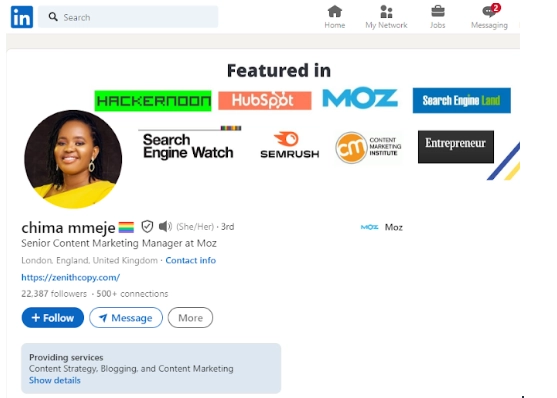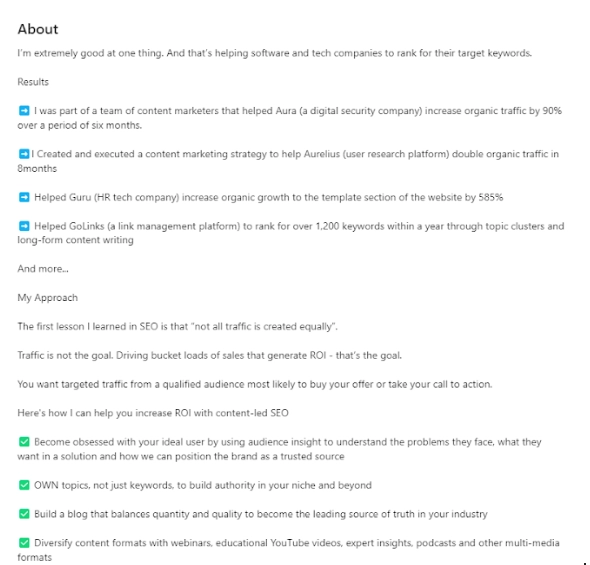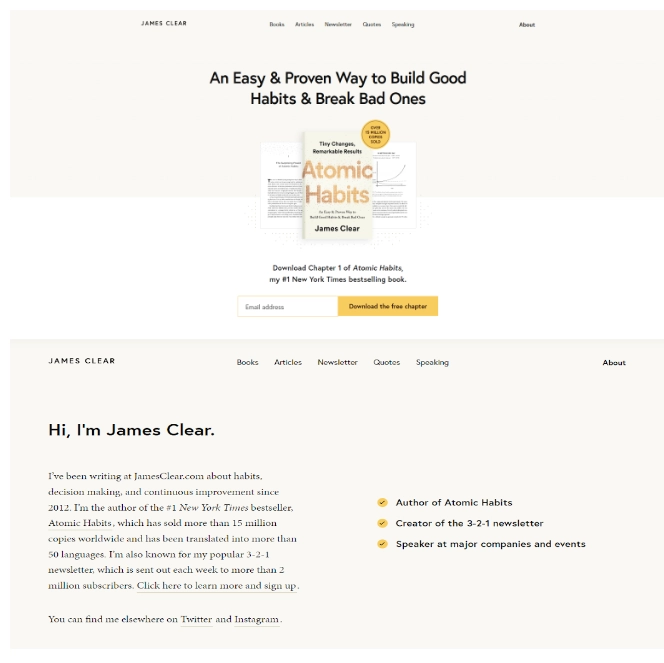Author Bio Best Practices for Marketing & SEO

Updated 6/12/25
In the digital age, authorship plays a crucial role in establishing credibility and authority, particularly for websites and blogs. An effective author bio can significantly enhance your SEO and content optimization efforts.
This guide covers the essentials of author bios, their role in SEO, tips for optimization, and how to use them as brand-building tools.
What Is an Author Bio?
An author bio is a short paragraph that summarizes an individual’s professional background, areas of expertise, and a touch of personality. It’s often accompanied by a professional photo and appears alongside blog posts, whitepapers, or on team pages.
Done right, it does more than explain credentials: it builds connection. Great bios combine career highlights with authentic, human storytelling that makes the author relatable.
Ideal length: 50–100 words
Format: Written in third person for credibility
Tone: A balance of professional and personable
Why Author Bios Matter for SEO
While they may seem like small website elements, author bios carry significant weight with both readers and search engines.
Google’s emphasis on E-E-A-T (Experience, Expertise, Authoritativeness, and Trustworthiness) highlights the importance of identifying who creates your content. Even without formal authorship markup, Google uses signals like bios and author pages to assess content credibility.
Key SEO benefits of author bios:
- Help Google understand author credibility
- Build trust with readers
- Increase time on page and engagement
- Support structured data and semantic search
- Reinforce brand expertise across your site
Tips to Create an Effective Author Bio
Use the following best practices to write bios that serve both readers and algorithms:
- Brevity and Clarity: Stay within 50–100 words unless there’s a dedicated author page. Focus on relevance and include details that matter to your target audience.
- Use the Third Person: Referring to yourself by name or “he/she” adds professionalism and makes bios easier to scan.
- Highlight Professional Credentials: Include your job title, role, certifications, years of experience, and key industry knowledge. Link to a LinkedIn profile or About page when appropriate.
- Showcase Thought Leadership: Mention specific areas of specialization or past content contributions. If you’ve published notable work or spoken at events, reference those concisely.
- Add a Human Touch: Share why you write, a key passion, or a short personal fact (e.g., “When not writing, you’ll find her hiking Georgia’s Blue Ridge trails”). Just one or two personal details is plenty.
- Link Strategically: Include a link to your full bio or About page, relevant social media profiles, internal links to other authored content.
SEO and Content Optimization Best Practices
Author bios support technical and on-page SEO efforts in the following ways:
- Use the Author’s Name as the Primary Keyword: This helps create an indexed, branded entity in search.
- Optimize Author Pages: Ensure author bio pages are indexable and include structured data (author, Person, or schema.org/author markup).
- Internal Linking: Link to other content written by the author to keep users on your site longer.
- Keep It Current: Update bios when roles, certifications, or projects change.
- Use Structured Data: Implement author schema for better Google interpretation and visibility.
The rise in AI-generated content means Google is looking harder at the who behind each article. Strong author bios show that your content comes from real people with real expertise.
The Marketing Case for Author Personas
An author bio serves as a powerful tool in establishing a brand identity. They go beyond professional achievements, incorporating personal stories and interests that create a human connection with the audience.
This personal touch can make a brand more relatable and trustworthy, fostering a loyal following.
Showcasing the expertise and experiences of authors positions them as thought leaders in their respective fields. This not only enhances the perceived value of the content but also elevates the brand’s authority, influencing customer decisions and trust. A unique author persona can also distinguish your content and brand in a crowded digital space. It helps in creating a distinct voice that resonates with your target audience, setting you apart from competitors.
Engaging author bios that reflect the author’s personality and values can foster deeper relationships with the audience. This engagement goes beyond the transactional level, building brand loyalty and a community of followers.
Lastly, a well-crafted author bio can open doors to networking opportunities, collaborations, and partnerships. It showcases not only what you offer but also what you stand for, attracting like-minded individuals and organizations.
Aligning SEO and Branding Through Author Bios
- Start with brand voice and positioning
- Layer in SEO where it supports discovery
- Use bios to tell a story, not just share a resume
- Adapt with trends, but stay true to your voice
Examples that Work
The tone you use to write your author bio should reflect the type of writing you do. If you’re a financial consultant, you want to come across as a credible and trustworthy source of financial-related information. You might want to use a more professional tone. Below are some examples of good author bios that we found across the web:
Davis Ashura

According to this authors bio, “Davis Ashura is an author of such sublime depth and beauty that his works have been known to cause a tear to fall from the eyes of even the hardest of hearts.
Davis Ashura’s bio is the perfect mix of humor and mythical references. He cleverly turns everyday details about his life and family into a fantasy story. A reader gets a good idea of his style of writing. Referring to Kronos, a god from Greek mythology, further cements his place in the world of fantasy.
Chime Mmeje
By leading with a powerful hook that aligns with her target audience’s marketing needs, Chima Mmeje, a freelance SEO copywriter, is able to keep readers engaged.


Instead of listing accolades, Chima does something different by sharing some victories secured for her clients. This does a couple things. First, the readers’ confidence is built in Chima’s ability to deliver results. Second, it’s a great way to name-drop some clients in her professional bio.
In the body of the professional bio, Chima briefly lists the processes that can help potential clients get a bird’s-eye view of what they can expect.
The simple call to action “Drop a message” is a casual invitation to learn more about Chima’s services.
Jamesclear.com

This website bio page has a fluid design filled with attractive colors and fonts. Several articles are displayed on the website, respectively categorized which is helpful for readers. Testimonials are available for books and those can be purchased directly from different platforms in multiple languages. Brilliant email marketing strategy by sending a free chapter of the book to the visitor’s email address. The one thing to consider is to create a contact page which is crucial for an author website.
Main Takeaways
Your author bio isn’t just a formality, it’s your handshake with the reader and your credibility signal to search engines.
Whether you’re building trust with readers, increasing visibility in search, or strengthening your brand voice, a great bio is worth the effort. Keep it concise, clear, and aligned with both your SEO goals and your brand story.
Need help crafting bios that work harder for your marketing goals?
Contact WT Digital, we’ll help you tell your story right.
About the Author

Kevin Bossons
Senior Digital Strategist
With over 15 years of experience in digital marketing and search engine optimization, Kevin has grown from an SEO contractor to Senior Digital Strategist at WT Digital Agency.